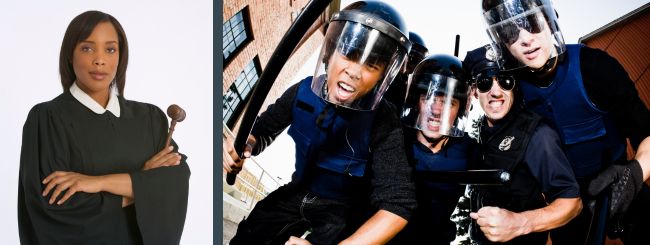בס”ד
Deuteronomy 16:18-21:9 from 13 August till 19 August
שֹׁפְטִ֣ים וְשֹֽׁטְרִ֗ים תִּֽתֶּן־לְךָ֙ בְּכׇל־שְׁעָרֶ֔יךָ
You must appoint judges and sheriffs for yourself in all your cities. (Deuteronomy 16:18)
One of the Seven Noahide Commandments is to establish a court so that the other six Commandments are observed. Judges should enforce and implement these commandments and those who stray from the true path should remind (force) them to observe the mitzvot. They will issue orders on the performance of good and warn against evil and impose punishments on transgressors. This so that the observance of the Seven Noahide Commandments is not left to the whim of each individual.[1]
In earlier times, it was common for judges to sit in the city gates. So was Lot sitting in the City gates when the two men/ angels entered Sodom.[2]
Nowadays, there are no more gates where judges are sitting, they sit in the Courthouses. But the judges are still sitting in our gates. Allegorically, gates can be interpreted as referring to the “gates” of the body – the ears, eyes, nose and mouth – through which external stimuli enter our consciousness. We are thus called upon to appoint “judges”. Our own “judge” study’s Torah, the 7 Noahide Commandments, and know exactly what is good and wat is not good.
The text speaks not only of judges but also of sheriffs/policemen. We all know that society is safer when there are more police officers visibly present on the streets. They guard the “gates” of society, as it were. We need “policemen” to guard our gates so that no pernicious entities could enter that could be harmful to our sanity and integrity. Our gates are our ears, eyes, nose and mouth. In the book “Crossing the Narrow Bridge” we read[3]:
Ears: Listen to the words of the wise (Proverbs 22:17). When you are studying Tora do that out loud. This way, you will hear ‘words’ that were once spoken by wise people. Conversely, this means avoiding any conversation which includes slander, tale-bearing and the like, or bad music.
Eyes: Look at the world and see the beauty of creation. Look at another and see in him the tselem – image – of G-d. Conversely this means, not looking at anything evil or anything that may cause temptation. We must avoid looking lustfully and avoid observing others transgressing. We must avoid looking critically at our neighbor and not with jealousy.
Nose: Rebbe Nachman equates fear of Heaven with the nostrils as in the verse (Isaiah 11:3): “V’haRicho ([Mashiach] will be filled) with the fear of G-d… “ei’aCh is the sense of smell. This means, take a long breath of patience no matter what, showing love to the person you were about to get angry at. Conversely, this means, bend your doubt into full trust in G-d. Everything that happens in the world comes from G-d. Don’t get angry, and when you get angry – which is a form of doubting G-d – transform that anger into compassion.
Mouth: Speech is what differentiates man from animal. Use speech for the truth, for creating and promoting peace, Torah, prayer to G-d and offer words of kindness and sympathy to one who is ill or troubled. Conversely, this means, stay away from speech which is false; slander, tale-bearing, mockery and all other forms of forbidden speech.
The “Judge” is our conscience which we have trained by studying the 7 Noahide Commandments through Rabbis so that we know what is right and wrong and can act accordingly. The policemen we must mobilize if we are to give in to our evil inclination.
It is actively making ourselves aware of the longer-term consequences our wrong choice will bring about. The harm we could do to our fellow man with it and the disturbed relationship we would thereby create with G-d and the negative consequences, in the form of punishment (in the present life or in the life hereafter) that we would receive.
Let us strive to make our “judge” strong by sufficient knowledge so that we need as few police officers as possible to keep negative influences outside our gates.
By Angelique Sijbolts
Sources:
[1] Chabad Article: Establishing a Judicial System
[2] Chizkuni, Genesis 19:1:2
[3] Crossing the Narrow Bridge. A practical guide to Rebbe Nachman’s Teachings. Chapter 16: The Seven Candles.
Kehot Chumash
Texts: Sefaria.org
© Copyright, all rights reserved. If you enjoyed this article, we encourage you to distribute it further.
